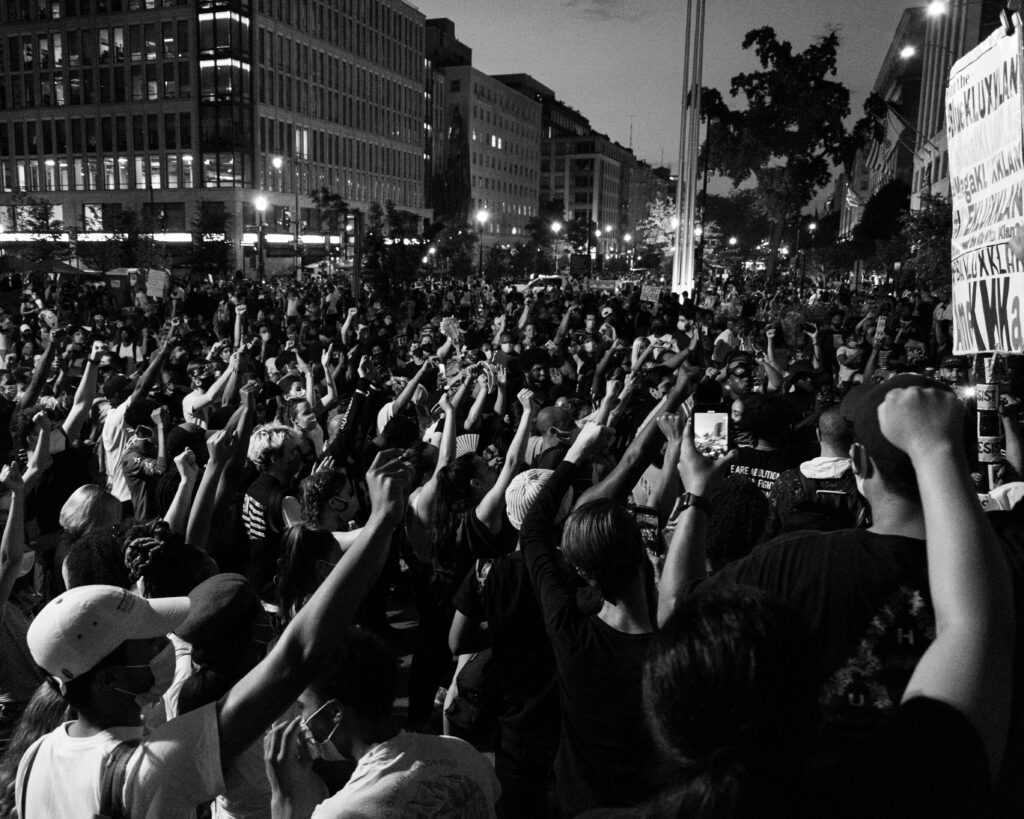
As broken people—like everybody else—in a broken world, we will face disagreements and conflicts. To ameliorate and mediate these conflicts, God has established authority structures under which we all live and function.
Before I delineate those, I’d like to note that much of modern culture rejects the whole idea of authority structures. Anarchists, such as Antifa, reject all governmental authority. Non-religious people reject church authority structures, of course, and a majority of contemporary Western culture rejects familial authority structures, most obviously the authority of husbands over their wives and the authority of parents over their children—the latter seeming particularly unpopular with many teachers in public education.
Now, such people are of course free to believe whatever they want, but as is the case anytime humans reject the divine order, they run pretty quickly into a workability problem. Whether you’re doing away with government or other authority structures, you’re going to end up with chaos, with everyone doing what’s right in his own eyes. That’s been tried before (Jdg 21.25)—more than once—and it has never turned out well. Feel free to think of examples beyond the two I’ve mentioned; the pattern holds.
Arguments against authority typically simply cite examples of abuses of governmental or ecclesiastical or familial authority, and there are many. But the fact that something is done wrong is no argument that it cannot be done right, or that it is so inherently evil that it shouldn’t be done at all. Is Florence Foster-Jenkins proof that nobody should sing? Given the brokenness of the world and its inhabitants, there will always be abuses. When they occur, we ought to correct them, but we will never construct a system in which such abuses don’t happen.
How about
“Come on, people, now, smile on your brother;
Everybody get together, try to love one another right now”?
I heard Jesse Colin Young sing that live on Boston Common more than fifty years ago. Didn’t work then; doesn’t work now.
So I would suggest that it’s worth our time to recognize the authority structures under which God has placed us and to seek to live orderly, sensible, and realistic lives instead of insisting on the “freedom” of making things up as we go, all the way to utter chaos.
I’ve already identified those authority structures above (contextually, as formal debaters say), but let me list them formally here, in the order in which God created them.
The Home / Family
The first people God created he intended to be a unit, an organism. Specifically, they were to be husband and wife (Ge 2.18, 21-25), and, as the language indicates, they were to have children (Ge 2.24, “one flesh”; cf Ge 9.1, 7). Later Scripture speaks repeatedly of the authority of parents over their children (e.g. Ep 6.1-4).
The State / Government
There is obviously no need for a state until the human population grows beyond a single family, but that apparently came very early in history, given the extended lifespans in that time (Adam, for example, lived to be more than 800 years old [Ge 5.4]). Adam’s son, Cain, established “a city” (Ge 4.17), probably several centuries after creation. We’re not told what sort of government it had, but some organization must have been involved.
As Noah left the ark after the flood, God bestowed on humans the authority of capital punishment (Ge 9.6), which I think can serve as a clear indication of human government.
And if the state can kill you for violating its law against murder, then clearly it has authority and can command obedience.
It’s worth noting that pretty much all government in those days—indeed, all the way through the Medieval period—was autocratic. Of course the ancient Greeks experimented with democracy in Athens and Sparta, but that was short-lived and not influential. The current broad menu of governmental systems is a recent and unusual development. But the authority has always been there.
The Church
This third authority structure is a relative latecomer, having been instituted after the earthly ministry of Christ, at Pentecost (Ac 2.47 is the first biblical mention of the church as existing). It is never said to have authority over nonbelievers (hence the poor record of theocratic systems in the centuries since), but believers are often told to recognize and obey ecclesiastical authorities (e.g.2Th 3.7; He 13.7).
Now.
Since the world and everyone in it is broken, these authority structures are broken as well. There are mistakes and errors in judgment and execution, and often there are abuses.
Now what?
Next time.
Photo by Koshu Kunii on Unsplash

Leave a reply. Keep it clean.